Bilateral Investment Treaty vs. FTAs: India's Stance
By Rediff Money Desk, New Delhi Dec 22, 2024 16:34
India argues for separate investment protection agreements, citing concerns about dispute resolution mechanisms and costs in FTAs. Experts highlight the potential for detrimental implications and favor the exhaustion of local remedies.
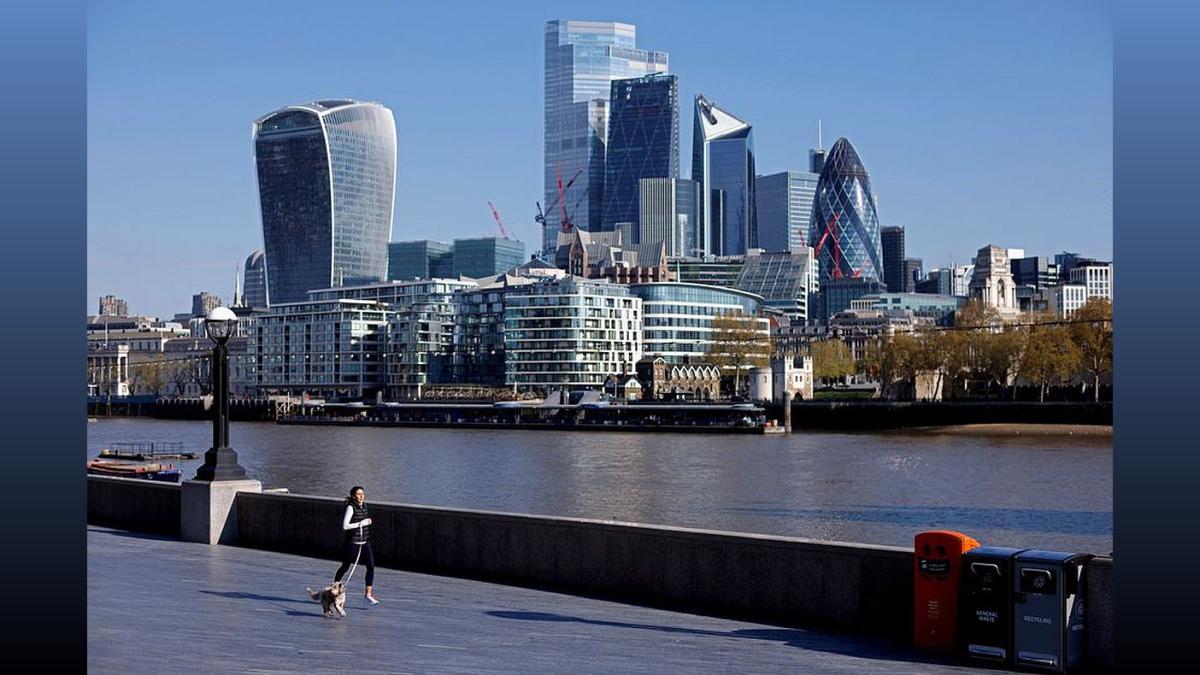
Photograph: John Sibley/Reuters
New Delhi, Dec 22 (PTI) Demands of certain developed countries from India to negotiate 'investment protection' elements under an FTA is inappropriate as negotiating the matter as part of a separate chapter under the trade pact could have larger and detrimental implications, source said.
Legally speaking, they said, the investment protection element provides a wide range of obligations and commitments bestowed upon foreign investors, which are expansive in nature.
"Recently, a lot has been heard about countries that are desiring India to negotiate 'investment protection' elements vis-a-vis investment chapter as part of the free trade agreement (FTA). However, this is incorrect," one of the sources said.
For instance, the European Union (EU) has been negotiating a separate investment protection agreement or treaty with India, and not as part of the India-EU free trade agreement.
"Having 'investment protection' as a chapter of a FTA could have larger and detrimental implications even on the trade agreements' structure, especially when FTAs have specialised dispute settlement mechanisms which shall allow countries to take retaliatory measures in unrelated sectors, even for investment disputes," the source said.
However, such a concern would not arise when investment protection agreements are negotiated independently and free from FTAs.
While prior to its Model BIT (Bilateral Investment Treaty) of 2016, India has negotiated investment chapters in FTAs with countries like Japan, Korea, and Singapore, but there is a need for a caution as such provisions carry the perpetual risk of disputes spilling over the trade realm when matters are escalated to a country-country level of dispute resolution.
"India has argued that trade and investment protection agreements should remain separate to ensure better clarity in regimes and minimize risks that might arise out of regime interactions, that is, trade and investments," sources said.
Another matter of concern has been the "asks" of developed countries for arbitration as a dispute resolution mechanism for investor-state disputes in a treaty, they said, adding, interestingly the developed countries themselves, by way of their national policies, have been seen opting out of investor-state arbitrations as a dispute resolution mechanism.
This is evident from their recently negotiated treaties, for example the UK-New Zealand, UK-Australia, USA-Canada under United States-Mexico-Canada Agreement (USMCA) do not have investor-state arbitration as a dispute settlement procedure.
Recently, many European nations as well as the UK have openly withdrawn from the energy charter treaty which provided for an arbitration mechanism for investor-state dispute settlement.
Another major issue with arbitration is involvement of huge costs, which are eventually borne by taxpayers in case of state being respondent.
A study estimates arbitration costs between USD 5 million to USD 7.5 million, with additional expenses for enforcement and appeals, which can occur across multiple jurisdictions.
An arbitration is also a lengthy process which runs about up to four to five years excluding another considerable number of years spent in enforcement proceedings at various court levels.
"If the arbitration seat is the Netherlands, for example, then the Hague court has a three levels of court hierarchy system for proceedings, starting from the lowest court to the highest court of appeal, each of the levels adding to the cost," the source said.
In a BIT, the provision of mandatory exhaustion of local legal remedies for a period of five years before resorting to international arbitration is beneficial for both the investor and the state involved in a dispute.
The source argued that exhaustion of local remedies (ELR) allows the parties involved in a dispute to parallelly try and resolve the disputes in an amicable manner, before resorting to the costly arbitration mechanism.
India's approach of requiring local remedies aligns with its stance to protect taxpayer money and avoid prolonged and costly legal battles, while simultaneously providing arbitration as an alternate dispute resolution mechanism to investors.
Developed countries argue that ELR delays resolution. However, India counters it by strongly projecting that exhaustion of local remedies encourages early settlements. Further, this is not a novel practice in investment treaties and has been observed in the investment treaty practices of China, Colombia, Bangladesh, Malta, Serbia, Argentina, Korea and Turkey as well.
As per the UNCTAD dispute navigator website data, developing nations, such as Argentina, Colombia, and Ecuador, face the majority of arbitration cases, often filed by developed nations.
Arbitration cases have surged globally, reaching 1,332 so far, according to UNCTAD.
India's stance reflects broader concerns which are observed among other developing nations regarding the high costs, interpretation biases, and disproportionate impact of arbitration mechanisms.
Further, they added that the arbitration system is often dominated by decision-makers coming from a narrow-westernised demographic, which also poses challenges for developing nations like India.
"The investor-state arbitration system's structure remains strongly favourable to developed countries, and this needs to be changed," they added.
India remains committed to negotiating agreements that safeguard its economic interests while balancing investor confidence and domestic policy space.
Legally speaking, they said, the investment protection element provides a wide range of obligations and commitments bestowed upon foreign investors, which are expansive in nature.
"Recently, a lot has been heard about countries that are desiring India to negotiate 'investment protection' elements vis-a-vis investment chapter as part of the free trade agreement (FTA). However, this is incorrect," one of the sources said.
For instance, the European Union (EU) has been negotiating a separate investment protection agreement or treaty with India, and not as part of the India-EU free trade agreement.
"Having 'investment protection' as a chapter of a FTA could have larger and detrimental implications even on the trade agreements' structure, especially when FTAs have specialised dispute settlement mechanisms which shall allow countries to take retaliatory measures in unrelated sectors, even for investment disputes," the source said.
However, such a concern would not arise when investment protection agreements are negotiated independently and free from FTAs.
While prior to its Model BIT (Bilateral Investment Treaty) of 2016, India has negotiated investment chapters in FTAs with countries like Japan, Korea, and Singapore, but there is a need for a caution as such provisions carry the perpetual risk of disputes spilling over the trade realm when matters are escalated to a country-country level of dispute resolution.
"India has argued that trade and investment protection agreements should remain separate to ensure better clarity in regimes and minimize risks that might arise out of regime interactions, that is, trade and investments," sources said.
Another matter of concern has been the "asks" of developed countries for arbitration as a dispute resolution mechanism for investor-state disputes in a treaty, they said, adding, interestingly the developed countries themselves, by way of their national policies, have been seen opting out of investor-state arbitrations as a dispute resolution mechanism.
This is evident from their recently negotiated treaties, for example the UK-New Zealand, UK-Australia, USA-Canada under United States-Mexico-Canada Agreement (USMCA) do not have investor-state arbitration as a dispute settlement procedure.
Recently, many European nations as well as the UK have openly withdrawn from the energy charter treaty which provided for an arbitration mechanism for investor-state dispute settlement.
Another major issue with arbitration is involvement of huge costs, which are eventually borne by taxpayers in case of state being respondent.
A study estimates arbitration costs between USD 5 million to USD 7.5 million, with additional expenses for enforcement and appeals, which can occur across multiple jurisdictions.
An arbitration is also a lengthy process which runs about up to four to five years excluding another considerable number of years spent in enforcement proceedings at various court levels.
"If the arbitration seat is the Netherlands, for example, then the Hague court has a three levels of court hierarchy system for proceedings, starting from the lowest court to the highest court of appeal, each of the levels adding to the cost," the source said.
In a BIT, the provision of mandatory exhaustion of local legal remedies for a period of five years before resorting to international arbitration is beneficial for both the investor and the state involved in a dispute.
The source argued that exhaustion of local remedies (ELR) allows the parties involved in a dispute to parallelly try and resolve the disputes in an amicable manner, before resorting to the costly arbitration mechanism.
India's approach of requiring local remedies aligns with its stance to protect taxpayer money and avoid prolonged and costly legal battles, while simultaneously providing arbitration as an alternate dispute resolution mechanism to investors.
Developed countries argue that ELR delays resolution. However, India counters it by strongly projecting that exhaustion of local remedies encourages early settlements. Further, this is not a novel practice in investment treaties and has been observed in the investment treaty practices of China, Colombia, Bangladesh, Malta, Serbia, Argentina, Korea and Turkey as well.
As per the UNCTAD dispute navigator website data, developing nations, such as Argentina, Colombia, and Ecuador, face the majority of arbitration cases, often filed by developed nations.
Arbitration cases have surged globally, reaching 1,332 so far, according to UNCTAD.
India's stance reflects broader concerns which are observed among other developing nations regarding the high costs, interpretation biases, and disproportionate impact of arbitration mechanisms.
Further, they added that the arbitration system is often dominated by decision-makers coming from a narrow-westernised demographic, which also poses challenges for developing nations like India.
"The investor-state arbitration system's structure remains strongly favourable to developed countries, and this needs to be changed," they added.
India remains committed to negotiating agreements that safeguard its economic interests while balancing investor confidence and domestic policy space.
Source: PTI
Read More On:
DISCLAIMER - This article is from a syndicated feed. The original source is responsible for accuracy, views & content ownership. Views expressed may not reflect those of rediff.com India Limited.
You May Like To Read
TODAY'S MOST TRADED COMPANIES
- Company Name
- Price
- Volume
- ARC Finance
- 1.51 (+ 2.72)
- 99106131
- Vodafone Idea L
- 8.27 (+ 1.72)
- 37910491
- Guj. Toolroom Lt
- 18.98 (+ 4.98)
- 33052379
- Srestha Finvest
- 0.81 ( -2.41)
- 24087791
- Filatex Fashions
- 0.69 ( -4.17)
- 20455844
MORE NEWS

UCO Bank Reports 12% Business Growth in Q3 FY25
UCO Bank's total business grew 12.18% in Q3 FY25, driven by a strong performance in...

JNPA Container Traffic Up 12% in 2024: Record...
Jawaharlal Nehru Port Authority (JNPA) saw a 12% rise in container traffic to 7.05...

RBI Lifts Restrictions on Arohan Financial...
The Reserve Bank of India has lifted restrictions on Arohan Financial Services Limited,...





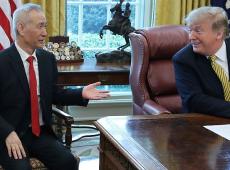
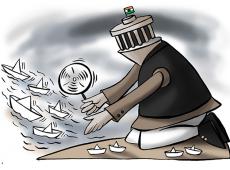

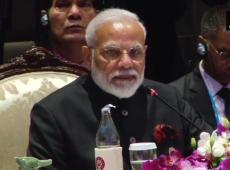
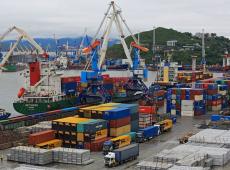
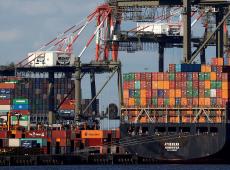

 © 2025 Rediff.com India Limited. All rights reserved.
© 2025 Rediff.com India Limited. All rights reserved.